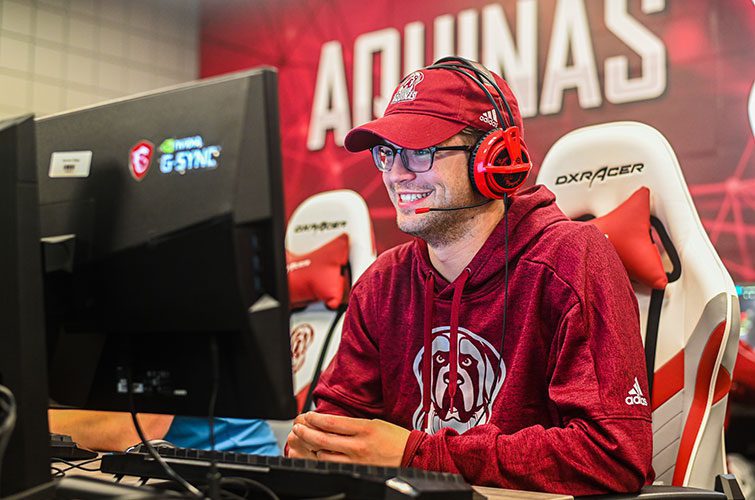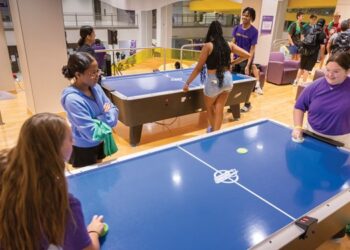Esports is part of the growing, world-wide concern of technological burnout.
Ending his second year at Aquinas College and starting a new role as director of Esports at Florida Southern College, former head esports coach Adam Antor said burnout is a topic that seems to be talked about a lot, but there’s not a significant amount of practical advice for preventing it, especially in esports.
“Specifically in our program, we’ve had numerous students communicate feeling burned out throughout the season or a general feeling of not enjoying the game they compete in,” said Antor. “On social media, I have also seen an increasing number of professional esports competitors retiring or taking a break from competition due to burnout.”
Antor elaborated not every player will act the same when they are experiencing burnout. As such, he shared some signs coaches can look for.
Signs of Esports Burnout
1. A player who normally plays their game outside of practice stops playing in their free time.
“I’ve seen players who come into our program playing five to six nights per week stop playing outside of practice. Eventually, they lose motivation to play the game during practice,” said Antor. “If a coach sees a player change their gaming routine or shift to a different game title, it’s important to have a check-in with them. Identify if they might be experiencing burnout. Then come up with a plan to combat it.”
2. Short tempers in practice.
“If you are noticing players becoming short tempered with mistakes from their teammates and that frustration seems to be coming more from an emotional place instead of a logical one, that player might be experiencing some burnout and need a break from the game,” elaborated Antor.
3. General talk of frustration with playing the game.
Antor shared this can come out in a statement from a player like:
- “I’m tired of League of Legends.”
- “I just don’t like playing Rocket League anymore.”
The first step is recognizing it. However, the most important aspect of combating burnout is for the entire team to confront it head on.
“I highly encourage every director who has coaches underneath them to schedule weekly check-ins and talk specifically about any players you think might be experiencing burnout,” he said. “Then come up with a plan to tackle it, starting with a conversation with that student.”
EXTRA CREDIT: Here’s how recreational esports leagues aid in the development of community.
From a recreation perspective, Antor elaborated it’s important to realize burnout isn’t only an esports problem. Students experience burnout frequently, and the source can come from anywhere on campus or in their personal lives. Furthermore, a student might not be experiencing burnout. Instead, they may be experiencing something in their personal life that would benefit from the counseling services on campus for instance.
“Some of the signs of burnout could be similar to a player experiencing depression, and it’s important to be able to offer the correct resources for the student,” said Antor. “Don’t be afraid of having these conversations with students.”











